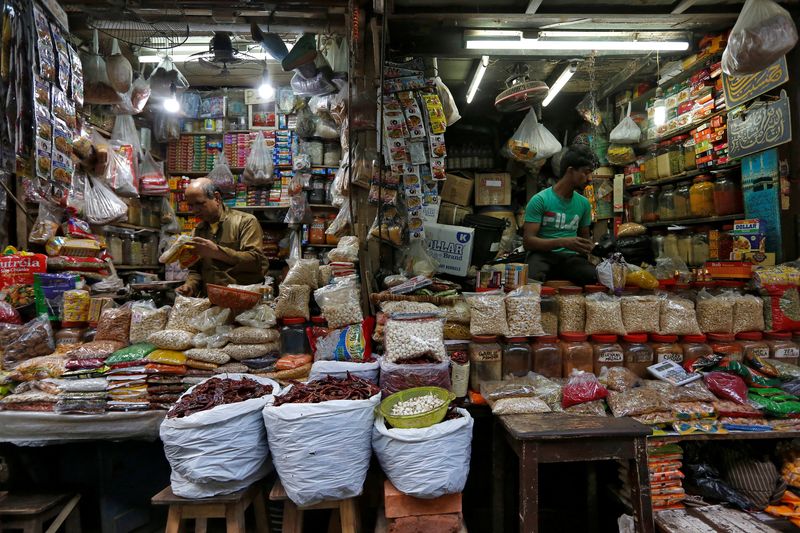India’s retail inflation hits 15-month high on food prices
2023.08.14 10:14

© Reuters. FILE PHOTO: Vendors wait for customers at their respective shops at a retail market in Kolkata, India, December 12, 2018. REUTERS/Rupak De Chowdhuri/File Photo
By Aftab Ahmed and Nikunj Ohri
NEW DELHI (Reuters) -India’s annual retail inflation in July rose to its highest in 15 months as vegetable and cereals prices skyrocketed, beating all market expectations and putting pressure on the government to take action to bring down prices.
India’s annual retail inflation rose sharply to 7.44% in July from 4.87% the previous month. A Reuters poll of 53 economists had forecast a rate of 6.40%. The figure was the highest since April 2022, when the print was 7.79%.
The figures breached the upper end of the central bank’s inflation band of 2%-6% for the first time in five months.
“The spurt in CPI inflation in July 2023 was on expected lines, however, 7.44% retail inflation was totally unexpected,” said Devendra Pant, economist at India Ratings.
Food inflation, which accounts for nearly half of the overall consumer price basket, rose at a staggering pace of 11.51% in June as compared with 4.49% in June. Retail food inflation was at its highest since January 2020, when it was over 13%.
Last week, the Reserve Bank of India (RBI) raised its inflation forecast for the current financial year to 5.4% from 5.1% earlier, citing pressures from food prices. In the July-September quarter, it now sees inflation at 6.2%, significantly higher than the 5.2% earlier forecast.
Vegetable inflation rose by a whopping 37.34% after a fall of 1% in the previous month. Prices of some of the most used vegetables in Indian kitchens, including tomatoes, onions, peas, brinjal, garlic and ginger, have more than doubled in the last few months.
Cereal inflation in July increased to 13.04% from 12.7% in June. Last month, the Indian government banned exports of non-basmati white rice, triggering fears of further inflation in global food markets.
“While the spurt in vegetable prices is seasonal, the worrying trend is the structural nature of cereals inflation,” Pant said.
The Reserve Bank of India held its key lending rate steady on Thursday, as expected, but moved to reduce the amount of cash in the banking system as inflation concerns resurfaced following higher-than-usual seasonal spikes in food prices in recent weeks.
India’s wholesale price inflation fell at a smaller than expected pace because of higher prices for food.
However, core retail inflation, which strips out volatile food and energy prices, was estimated to be 4.9% to 4.97% for the month.








